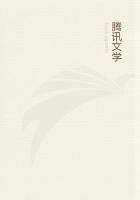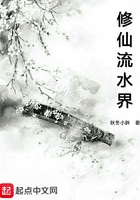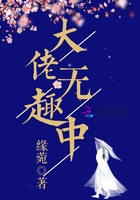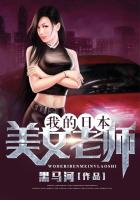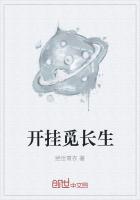So are the captains, Welsh, Scotch, and Irish of "Henry V.," and Malvolio especially later; though Shakespeare never employed the method of humours for an important personage. It was not Jonson's fault that many of his successors did precisely the thing that he had reprobated, that is, degrade "the humour: into an oddity of speech, an eccentricity of manner, of dress, or cut of beard. There was an anonymous play called "Every Woman in Her Humour." Chapman wrote "A Humourous Day's Mirth," Day, "Humour Out of Breath," Fletcher later, "The Humourous Lieutenant," and Jonson, besides "Every Man Out of His Humour," returned to the title in closing the cycle of his comedies in "The Magnetic Lady or Humours Reconciled."With the performance of "Every Man Out of His Humour" in 1599, by Shakespeare's company once more at the Globe, we turn a new page in Jonson's career. Despite his many real virtues, if there is one feature more than any other that distinguishes Jonson, it is his arrogance; and to this may be added his self-righteousness, especially under criticism or satire. "Every Man Out of His Humour" is the first of three "comical satires" which Jonson contributed to what Dekker called the 'poetomachia' or war of the theatres as recent critics have named it. This play as a fabric of plot is a very slight affair; but as a satirical picture of the manners of the time, proceeding by means of vivid caricature, couched in witty and brilliant dialogue and sustained by that righteous indignation which must lie at the heart of all true satire -- as a realisation, in short, of the classical ideal of comedy -- there had been nothing like Jonson's comedy since the days of Aristophanes. "Every Man in His Humour,"like the two plays that follow it, contains two kinds of attack, the critical or generally satiric, levelled at abuses and corruptions in the abstract; and the personal, in which specific application is made of all this in the lampooning of poets and others, Jonson's contemporaries. The method of personal attack by actual caricature of a person on the stage is almost as old as the drama. Aristophanes so lampooned Euripides in "The Acharnians" and Socrates in "The Clouds," to mention no other examples; and in English drama this kind of thing is alluded to again and again. What Jonson really did, was to raise the dramatic lampoon to an art, and make out of a casual burlesque and bit of mimicry a dramatic satire of literary pretensions and permanency. With the arrogant attitude mentioned above and his uncommon eloquence in scorn, vituperation, and invective, it is no wonder that Jonson soon involved himself in literary and even personal quarrels with his fellow-authors. The circumstances of the origin of this 'poetomachia' are far from clear, and those who have written on the topic, except of late, have not helped to make them clearer. The origin of the "war" has been referred to satirical references, apparently to Jonson, contained in "The Scourge of Villainy," a satire in regular form after the manner of the ancients by John Marston, a fellow playwright, subsequent friend and collaborator of Jonson's. On the other hand, epigrams of Jonson have been discovered (49, 68, and 100) variously charging "playwright"(reasonably identified with Marston) with scurrility, cowardice, and plagiarism; though the dates of the epigrams cannot be ascertained with certainty. Jonson's own statement of the matter to Drummond runs: "He had many quarrels with Marston, beat him, and took his pistol from him, wrote his 'Poetaster' on him; the beginning[s] of them were that Marston represented him on the stage."*[footnote] *The best account of this whole subject is to be found in the edition of 'Poetaster' and 'Satiromastrix' by J. H. Penniman in 'Belles Lettres Series' shortly to appear. See also his earlier work, 'The War of the Theatres', 1892, and the excellent contributions to the subject by H.
C. Hart in 'Notes and Queries', and in his edition of Jonson, 1906.
Here at least we are on certain ground; and the principals of the quarrel are known. "Histriomastix," a play revised by Marston in 1598, has been regarded as the one in which Jonson was thus "represented on the stage";although the personage in question, Chrisogonus, a poet, satirist, and translator, poor but proud, and contemptuous of the common herd, seems rather a complimentary portrait of Jonson than a caricature. As to the personages actually ridiculed in "Every Man Out of His Humour," Carlo Buffone was formerly thought certainly to be Marston, as he was described as "a public scurrilous, and profane jester," and elsewhere as the grand scourge or second untruss [that is, satirist], of the time" (Joseph Hall being by his own boast the first, and Marston's work being entitled "The Scourge of Villainy"). Apparently we must now prefer for Carlo a notorious character named Charles Chester, of whom gossipy and inaccurate Aubrey relates that he was "a bold impertinent fellow...a perpetual talker and made a noise like a drum in a room. So one time at a tavern Sir Walter Raleigh beats him and seals up his mouth (that is his upper and nether beard) with hard wax. From him Ben Jonson takes his Carlo Buffone ['i.e.', jester] in 'Every Man in His Humour' ['sic']." Is it conceivable that after all Jonson was ridiculing Marston, and that the point of the satire consisted in an intentional confusion of "the grand scourge or second untruss" with "the scurrilous and profane" Chester?
We have digressed into detail in this particular case to exemplify the difficulties of criticism in its attempts to identify the allusions in these forgotten quarrels. We are on sounder ground of fact in recording other manifestations of Jonson's enmity. In "The Case is Altered" there is clear ridicule in the character Antonio Balladino of Anthony Munday, pageant-poet of the city, translator of romances and playwright as well.


